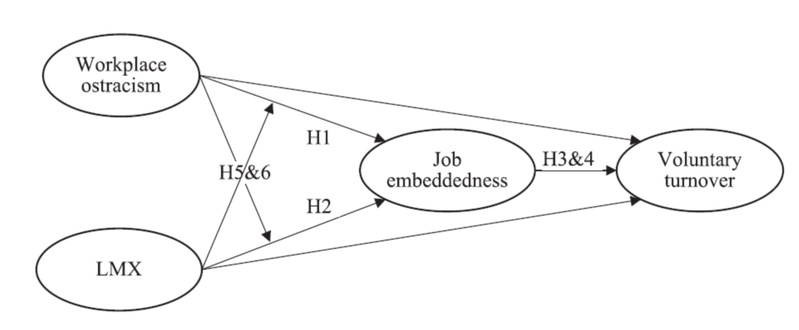Long Zhang et al. made an investigation into how leader-member exchange and workplace ostracism affect, individually and jointly, job embeddedness and voluntary turnover. This research has recently been published in Human Resource Management Journal, a top journal in the field of human resource management and industrial relations according to the Academic Journal Guide. The findings “illuminate the resource consequences of interpersonal interactions on job embeddedness and voluntary turnover,” and “offers practical implications for employee retention,” the authors noted. Abstract is copied below, and if you are interested in the full text please refer to https://onlinelibrary.wiley.com/doi/full/10.1111/1748-8583.12235.
This paper draws on a conservation of resources perspective to understand employee voluntary turnover. We conceptualise voluntary turnover as an outcome of resource loss, and we view job embeddedness as an indication of resource levels. On the basis of this conceptualisation, we propose that workplace ostracism and leader–member exchange (LMX) affect voluntary turnover via job embeddedness. We also propose an interaction effect of workplace ostracism and LMX: Workplace ostracism increases voluntary turnover by depleting job embeddedness only when people experience high-quality LMX. Data from 352 employees in a Chinese software company obtained through a three-wave survey support our model. Our findings illuminate the resource consequences of interpersonal interactions on job embeddedness and voluntary turnover, and we offer practical implications for employee retention.


Nanjing University of Aeronautics and Astronautics
Copyright 2017 | All Rights Reserved with NUAA
